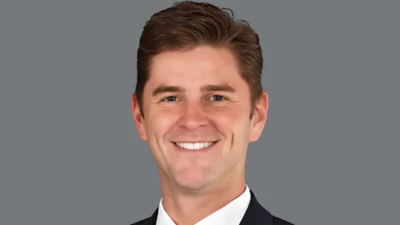Of the 45 states that adopted the Common Core State Standards six years ago, only 20 plan to administer tests from one of two aligned Common Core consortia. | File photo
Of the 45 states that adopted the Common Core State Standards six years ago, only 20 plan to administer tests from one of two aligned Common Core consortia. | File photo
While less than half the states that adopted Common Core six years ago plan to administer the program's tests this school year, a University of Wisconsin-Oshkosh (UW Oshkosh) English professor says it isn't going away because it isn't about education.
"It is not an educational program, it is a social justice program," UW Oshkosh Assistant English Professor Duke Pesta, who for five years has been a vocal opponent of Common Core, said during an interview on Chicago radio station WIND-AM. "It is not about making your kids ready for college. It's about turning them into good little progressives that don't necessarily know much but who are activist warriors for bad ideas. And we're seeing that manifested even in places where it absolutely doesn't belong, like math class."
Common Core represents the greatest appropriation of power over education by the federal government in American history, all at the expense of local communities, parents and families, Pesta said. "In order to reach the standards, there's a very particular kind of pedagogy, teaching and curriculum that goes into it. And this curriculum is a nightmare."
The curriculum teaches to the lowest common denominator of students at the expense of better-performing students to enforce a rigid standard of equality among all students, Pesta said.
"It's not designed to make kids master subject areas," he said. "It's not designed to make young kids able to do math at high levels. This is what I call social justice pedagogy. It is designed to make sure that all kids end up in the same place. I mean, literally, the common in Common Core means that all kids are going to come out with the same education."
The nationwide academic standards testing consortia that are intended to add more rigor and consistency to K-12 education and to allow for comparisons between states have not been cheap. In 2010, the U.S. Department of Education awarded the two assessment consortia $330 million in Race to the Top competitive grants to develop better assessments. Split between the consortia, $186 million went to Partnership for Assessment of Readiness for College and Careers (PARCC) while $176 million went to Smarter Balanced Assessment Consortium (SBAC).
Of the 45 states that adopted the Common Core State Standards six years ago, only 20 plan to administer tests from one of two aligned Common Core consortia, according to an article in the fall 2016 edition of Education Next.
"State participation in the consortia declined just as implementation of the new standards and tests was set to begin," the article said. "The pace of withdrawals quickened over time, particularly for PARCC, which five or six states left every year between 2013 and 2015."
By last spring, only six states planned to implement the PARCC-designed assessment in the 2016-17 academic year, the Education Next article said.
"SBAC also faced attrition but fared better and still retains 14 states that plan to use the full test," the article said.
By the earlier part of this year, 38 states had left one or both Common Core consortia, Education Next reported.
Despite that, Common Core isn't going away, Pesta said during the interview.
"[Since f]ive years ago, when I started giving these talks, I talked about 500 times in 46 states and I testified before 22 state legislatures," Pesta said. "It's not going away. The purpose of Common Core and the iterations of it from No Child Left Behind on back, the purpose was to primarily seek control of the kids. It's done that. You're not going to take it away unless you destroy the Department of Education, unless you go through and change how teaching colleges go about the preparing of young teachers. That's not going to happen, not in our lifetime."





 Alerts Sign-up
Alerts Sign-up